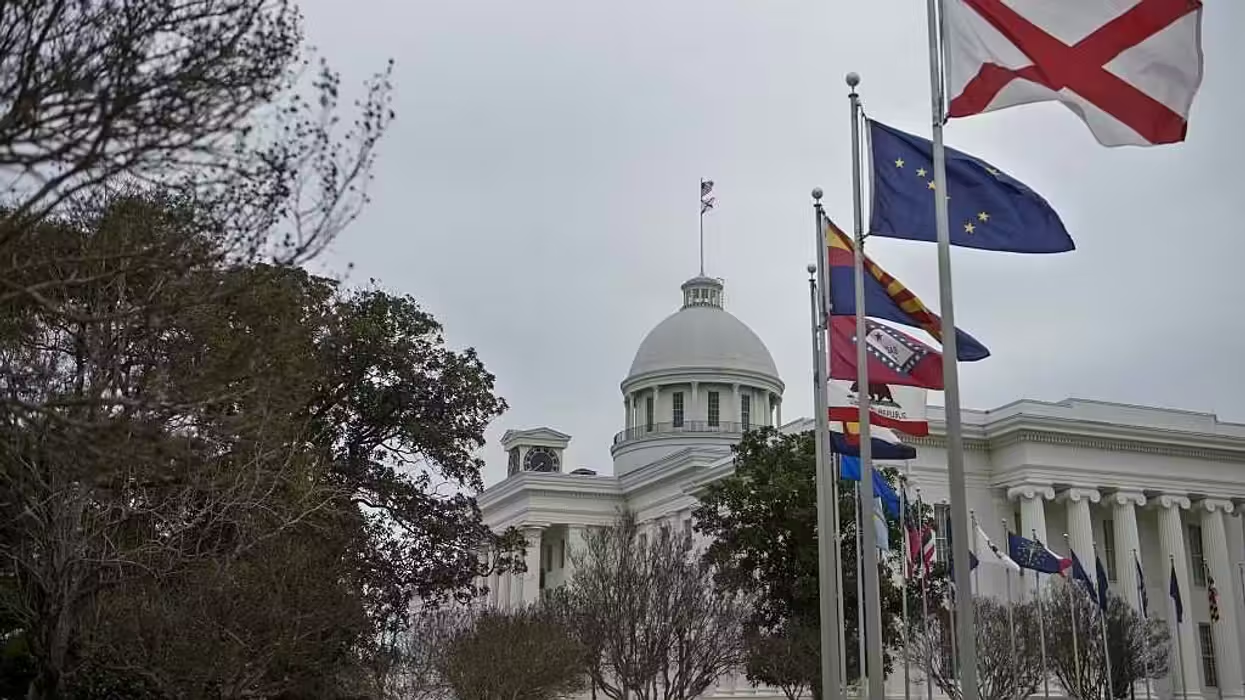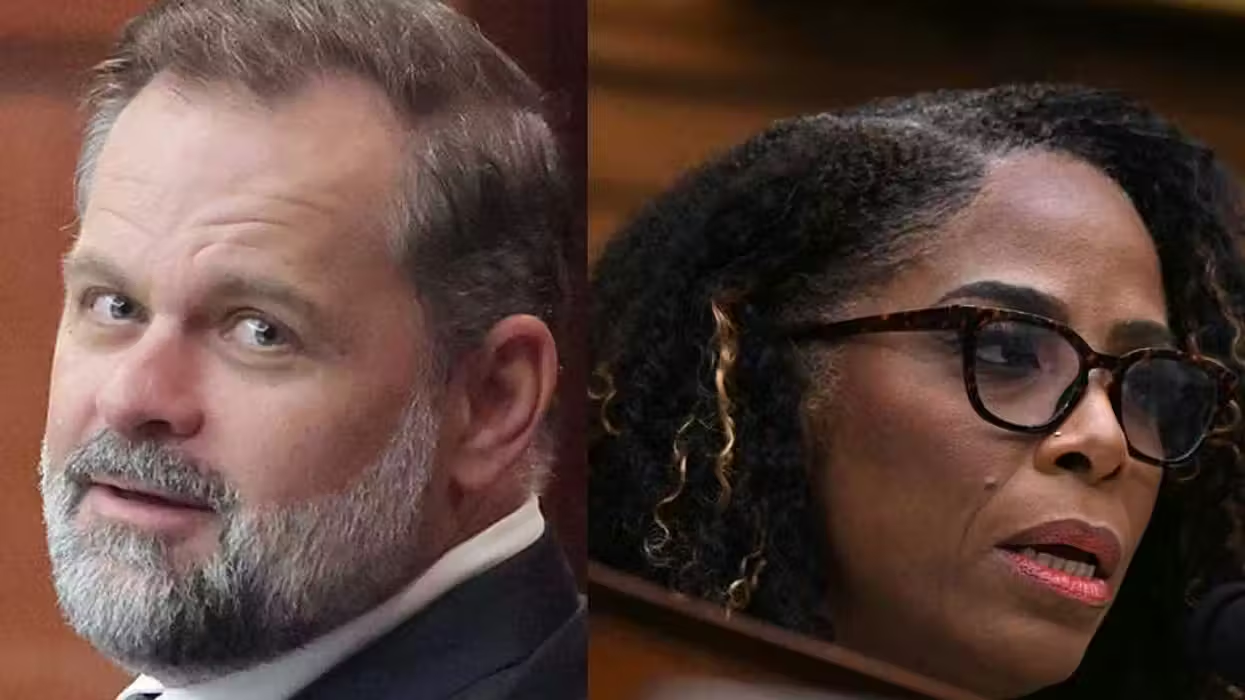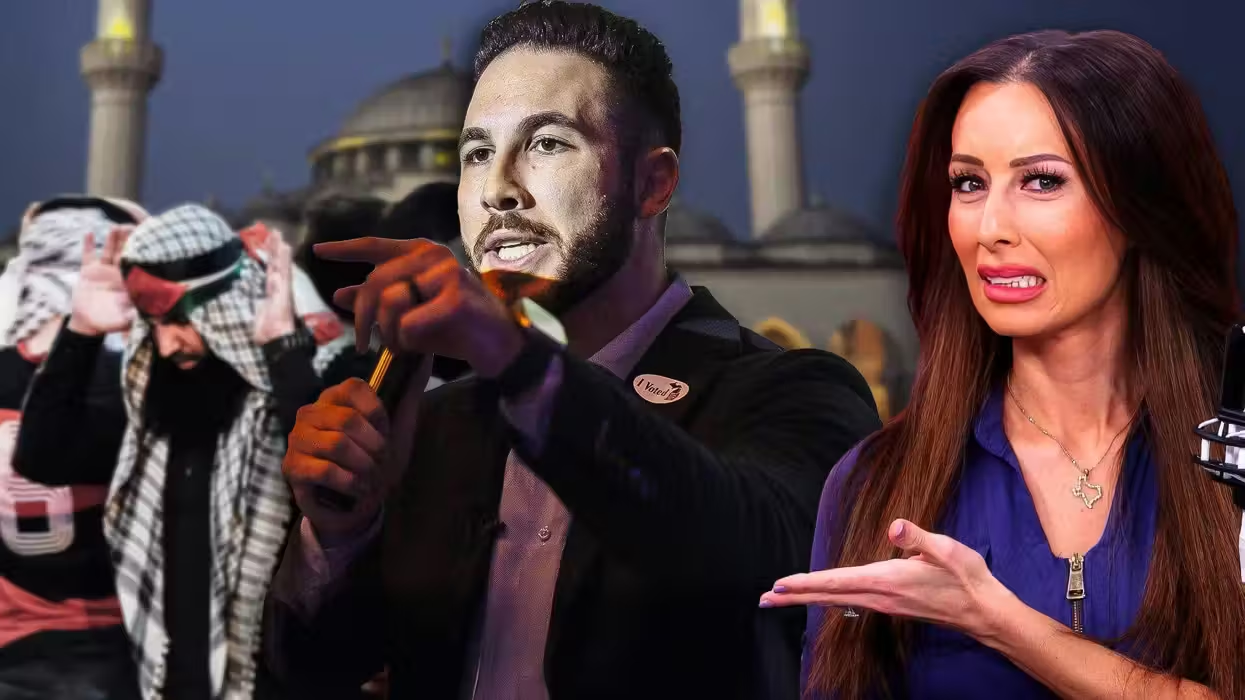
© 2025 Blaze Media LLC. All rights reserved.
Obama Says Climate Change 'Not a Hoax,' But Will the Issue Feature Prominently in This Election?
September 07, 2012
"...neither party wants it to be a central issue..."

Even though President Barack Obama and Republican presidential candidate Mitt Romney have answered the 14 questions about science asked of them by an independent science initiative, only one of these questions was in regard to climate change. In this election the politically polarizing issue of global warming and how it pertains to government regulation is a sticky one for both candidates, according to some experts.
And yet, last night during his acceptance for the Democratic presidential nomination Obama did drop a line in his speech regarding climate change.
"And yes, my plan will continue to reduce the carbon pollution that is heating our planet, because climate change is not a hoax. More droughts and floods and wildfires are not a joke. They are a threat to our children's future," he said at the Democratic National Convention in Charlotte, N.C.
But how important or beneficial is it for Obama to talk to his audience throughout this election season about climate change and what he proposes the government do about it? How will Romney address it?
To start, a Stanford University poll released in July found global warming was not the most important of environmental concerns among voters -- let alone among the other issues voters faces as they head to the polls this fall. Given that the economy, jobs creation and the deficit are taking center stage, those in the political arena interviewed by TheBlaze believe climate change and climate change mitigation will be touched upon but ultimately glossed over.
David Johnson, a Republican strategist and consultant with the firm Strategic Vision, told TheBlaze climate change is not important to either candidate at the moment.
"Right now, neither party wants it to be a central issue ... and would prefer not to address it." Johnson said.
Obama though is being pushed by some groups in support of government action to mitigate the effects of man-made global warming. A study from Yale University recently suggested there are actually benefits for candidates to take a "pro-climate stand." The university brief on the study states that at both the national level and in 10 swing states, a pro-climate stance would win Democratic votes as well as Independents. It also says a pro-climate stance would have little negative impact on Republican voters.
Ivan Kenneally, who has written for numerous publications and taught philosophy and political science at institutions including SUNY Geneseo and the Rochester Institute of Technology, told TheBlaze he would disagree. He said activist groups wanting to see climate change become a central issue in the campaign won't help either candidate.
The League of Conservation Voters, for example, launched a petition to PBS' Jim Lehrer, moderator of the first presidential debate, asking him to pose the question to the candidates and "confront the greatest challenge of our generation -- climate change." Similarly, Democratic strategist Betsy Taylor, president of Breakthrough Strategies & Solutions, recently told National Journal that the political donors she represents want Obama to "respond to Mitt Romney’s mocking and that he do so forcefully with a clear statement" about climate change.
If it does come up, most likely during one of the debates, Johnson said Obama will focus on the clean energy initiatives he has instituted and green jobs. Romney, on the other hand, would handle it as an opportunity to attack Obama's record of failed green initiatives and job creation (think the Solyndra scandal and the angle of regulations hindering business). At the same time though, Romney would move the focus toward what he thinks would best create jobs and boost the economy.
Romney has already exhibited this tactic. For example, in his acceptance speech at the Republican National Convention last week, he cited Obama's 2008 election promises to "begin to slow the rise of the oceans and heal the planet." Romney said his promise, on the other hand, "is to help you and your family."
Dr. David Reiss, who is a psychiatrist that has spoken and written about the psychology of politics from a non-partisan perspective, said the candidates could also take the angle of "caring" or "national security." Here's an example of the rhetoric Reiss thinks we could hear in a debate:
“We have been subject to extreme weather in certain parts of the country [provide a brief example]. (Regardless of the cause) we need to be better prepared for the safety of all. Therefore, I intend to… [and provide a short, clear statement of a realistic plan to help 'protect' affected areas].”
Using a tactic such as this that evokes a feeling of care and protection, Reiss said, could attract important swing voters, while not alienating other groups by tackling what is being debated as true and false in the scientific world.
Even if it's an issue the candidates might avoid, it is one Johnson said should be discussed.
"It needs to be addressed [by candidates] in some respect so people are not surprised when a certain policy gets implemented," Johnson said, looking further down the road.
With both Romney and Obama touching on climate change briefly in their respective acceptance speeches and the first presidential debate coming up on Oct. 3, only time will tell how this issue will play out for the election.
Want to leave a tip?
We answer to you. Help keep our content free of advertisers and big tech censorship by leaving a tip today.
Want to join the conversation?
Already a subscriber?
more stories
Sign up for the Blaze newsletter
By signing up, you agree to our Privacy Policy and Terms of Use, and agree to receive content that may sometimes include advertisements. You may opt out at any time.
Related Content
© 2025 Blaze Media LLC. All rights reserved.
Get the stories that matter most delivered directly to your inbox.
By signing up, you agree to our Privacy Policy and Terms of Use, and agree to receive content that may sometimes include advertisements. You may opt out at any time.





